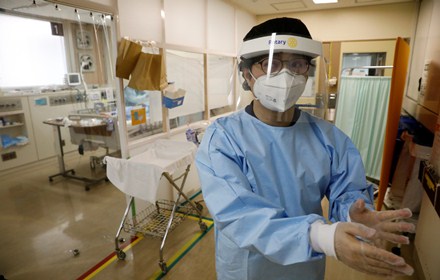source: editor:张雯妮

Nearly 30 percent of healthcare workers in Japan who have had experience dealing with coronavirus patients are suffering depression, a recent survey found.
The survey, which was published on Tuesday and conducted by the Japanese Red Cross Medical Center in April and May, covered some 2,000 medical workers and a total of 850 people responded.
Among them, 27.9 percent or 237 people were in a state of depression, the study said, adding that it is "necessary to take measures to support the medical staff mentally".
According to the study, the main reason for depression was attributed to "increasing anxiety that the virus could infect people even when there were no symptoms".
Takehiro Izumo, a doctor who was involved in the study, said he was surprised by the number.
"The number of people ... is far more than I expected," Izumo said, "But as the war is going to be a long-term one we need to support medical workers mentally by ensuring they are not feeling isolated, or ensuring their work shifts give them time to recharge."
On Tuesday, 106 new cases were reported in Tokyo, surpassing the 100-mark for the sixth straight day and taking the total number of infections in Japan to over 20,000.
Since the pandemic began, around one-third of the infections in Japan have been in Tokyo.
In order to prepare healthcare workers and the wider medical system for an expected second wave, an increasing number of municipalities in Japan are conducting individual medical checkups of infants and toddlers following a decision to suspend group examinations.
Norio Ohmagari, the director of Japan's Disease Control and Prevention Center, said attention needed to be paid to the rise in infected patients without a clear contact history.
"At the current rate, there will be 160 untraceable infections daily after four weeks and 1,080 after eight weeks," Ohmagari said.